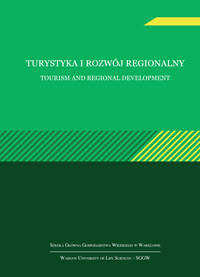Main Article Content
Article Details
Baušytė-Sipovič, B. (2021). The emotional experiences of seniors with disabilities in the process of art. therapy [Master’s thesis, Lithuanian University of Health Sciences]. Retrieved from: https://portalcris.lsmuni.lt/server/api/core/bitstreams/06441f20-ac9c-46a9-8ac4-4b49c7c27854/content (access: 18.04.2025).
Bowdin, G. A. J., Allen, J., O‘Toole, W., Harris, R., McDonnell, I. (2012). Events Management. Retrieved from: https://api.taylorfrancis.com/content/books/mono/download?identifierName=doi&identifierValue=10.4324/9780080964317&type=googlepdf (access: 20.04.2025). (Crossref)
Brown, N., Thompson, P., Leigh, J. S. (2018). Making academia more accessible. Journal of Perspectives in Applied Academic Practice, 6 (2). DOI: https://doi.org/10.14297/jpaap.v6i2.348 (Crossref)
Clijsters, M., Metten, W. (2023). Charter Towards an Accessible Municipality. World Congress of Architects, pp. 205–218. DOI: https://doi.org/10.1007/978-3-031-36302-3_16 (Crossref)
Dashper, K., Finkel, R. (2020). Accessibility, diversity, and inclusion in the UK meetings industry. Journal of Convention & Event Tourism, 21 (4), pp. 283–307. DOI: https://doi.org/10.1080/15470148.2020.1814472 (Crossref)
Doran, A. L., Dutch, V., Warren, B., Watson, R. A., Murphy, K., Aldis, A., Keppler, L. (2023). Planning virtual and hybrid events: steps to improve inclusion and accessibility. EGUsphere, 1–28. DOI: https://doi.org/10.5194/egusphere-2023-2939 (Crossref)
Dumbrauskaite, A. (2018). Increasing the accessibility of cultural services for people with disabilities. Retrieved from: https://data.kurklt.lt/wp-content/uploads/2023/04/2018-04-30-Esamasituacija. pdf (access: 20.04.2025).
European Court of Auditors (2023). Retrieved from: https://www.eca.europa.eu/ECAPublications/SR-2023-20/SR-2023-20_LT.pdf (access: 20.04.2025).
Hamilton, L. (2020). Inclusive Events Toolkit. European Heritage Days, Council of Europe, European Commission. Retrieved from: https://www.europeanheritagedays.com/sites/default/files/2020-12/Toolkit%20Web%20Version%20%28amended%29.pdf (access: 20.04.2025).
Harrison, E. A., Kopit, A. G. (2020). Accessibility at the Bisexual Health Summit: Reflections and lessons for improving event accessibility. Journal of Bisexuality, 20 (3), pp. 273–295. DOI: https://doi. org/10.1080/15299716.2020.1774834 (Crossref)
Jiménez-Andres, M. (2024). Accessibility of large events: an empirical study of the Expo 2020 Dubai. Universal Access in the Information Society, 23, pp. 1561–1577. DOI: https://doi.org/10.1007/s10209-023-01079-7 (Crossref)
Law on Social Integration of Persons with Disabilities of the Republic of Lithuania (2005). Lietuvos aidas, I-2044. Retrieved from: https://www.e-tar.lt/portal/lt/legalAct/TAR.199156E4E004/OzxwpqisAN (access: 19.04.2025).
Lithuanian Republic (2022). Law on the Fundamentals of Protection of the Rights of Persons with Disabilities of the Republic of Lithuania, XIV-1722. Retrieved from: https://e-seimas.lrs.lt/portal/legalAct/lt/TAD/TAIS.2319/asr (access: 19.04.2025).
Montagud, M., Orero, P., Matamala, A. (2020). Culture 4 all: accessibility-enabled cultural experiences through immersive VR360 content. Personal and Ubiquitous Computing, 24 (6), pp. 887–905. DOI: https://doi.org/10.1007/s00779-019-01357-3 (Crossref)
Nomanovas, D. (2022). Assessment of the need for changes in the policy of sports for persons with disabilities [Master’s thesis, Mykolas Romeris University]. eLABa. Retrieved from: https://vb.mruni.eu/object/elaba:132965470/ (access: 20.04.2025).
On the approval of the 2024–2026 action plan for ensuring the participation of persons with disabilities (2023). Retrieved from: https://e-seimas.lrs.lt/portal/legalAct/lt/TAD/304069f15bda11ee8e3cc6ee348ebf6d?jfwid=bkaxmu9s (access: 20.04.2025).
Picker de, M. (2020). Rethinking inclusion and disability activism at academic conferences: strategies proposed by a PhD student with a physical disability. Disability & Society, 35 (1), pp. 163–167. DOI: https://doi.org/10.1080/09687599.2019.1619234ez%C4%97s%29%20RED.%202023%2012%2020.pdf?sequence=3&isAllowed=y#page=75 (Crossref)
Richards, G., Simons, I. (2023). Measuring Physical, Digital and Hybrid Leisure Experiences at Events. DOI: https://doi.org/10.13140/RG.2.2.28944.48647
Serbentienė, A. (2021). The significance of ethical values for the prosperity of a welfare society: The case of children with mental disabilities [Master’s thesis, Klaipëda University]. Retrieved from: https://vb.ku.lt/object/elaba:80200170/MAIN (access: 20.04.2025).
Sousa, H., Vlachou, M. (2021). The cultural participation of people with disabilities or impairments: How to create an accessibility plan. Retrieved from: https://accessculture-portugal.org/accessibility-plan/ (access: 20.04.2025).
The United Nations Convention on the Rights of Persons with Disabilities and its Optional Protocol (2006), 71-3561. Retrieved from: https://www.etar.lt/portal/lt/legalAct/TAR.9A3163C6862C (access: 20.04.2025).
The Ministry of Social Security and Labour of the Republic of Lithuania (2024). Disability Statistics and Dynamics. Retrieved from: https://socmin.lrv.lt/lt/veiklos-sritys/socialine-integracija/negaliosreforma-ir-asmenu-su-negalia-itrauktis/statistika-2/ (access: 20.04.2025).
Zigmantavičiūtė, R., Ostasevičienė, V. (2023). The concept of ableism and its expression in disability sports in Lithuania. Management of Athlete Training and Factors Determining Athletes’ Work Capacity, p. 75. Retrieved from: http://dspace.lsu.lt/bitstream/handle/123456789/115/Sportinink%C5%B3%20rengimo%20valdymas%20%2 (access: 20.04.2025).
Downloads
- Longina Chojnacka-Ożga, Aleksandra Ożga, Wojciech Ożga, Las jako miejsce aktywności fizycznej studentów , Turystyka i Rozwój Regionalny: Nr 23 (2025)
Możesz również Rozpocznij zaawansowane wyszukiwanie podobieństw dla tego artykułu.
- Jolita Variakojienë, Irena Achonen, The impact of war in Ukraine on the inbound tourism in Lithuania , Turystyka i Rozwój Regionalny: Nr 18 (2022)
- Jolita Variakojienë, Irena Achonen, Justina Vaitkevičiűtë, The impact of war in Ukraine on the inbound tourism in Lithuania: replication of studies , Turystyka i Rozwój Regionalny: Nr 20 (2023)
- Alina Katunian, Jolita Variakojiene, Lina Zirnele,, Theoretical and practical assumptions of the business travel organization. Lithuanian case , Turystyka i Rozwój Regionalny: Nr 13 (2020)
- Greta Gruodė, Irena Achonen, Jolita Variakojiene, Pandemic Impact on Lithuania‘s tour operators , Turystyka i Rozwój Regionalny: Nr 15 (2021)

Utwór dostępny jest na licencji Creative Commons Uznanie autorstwa 4.0 Międzynarodowe.





